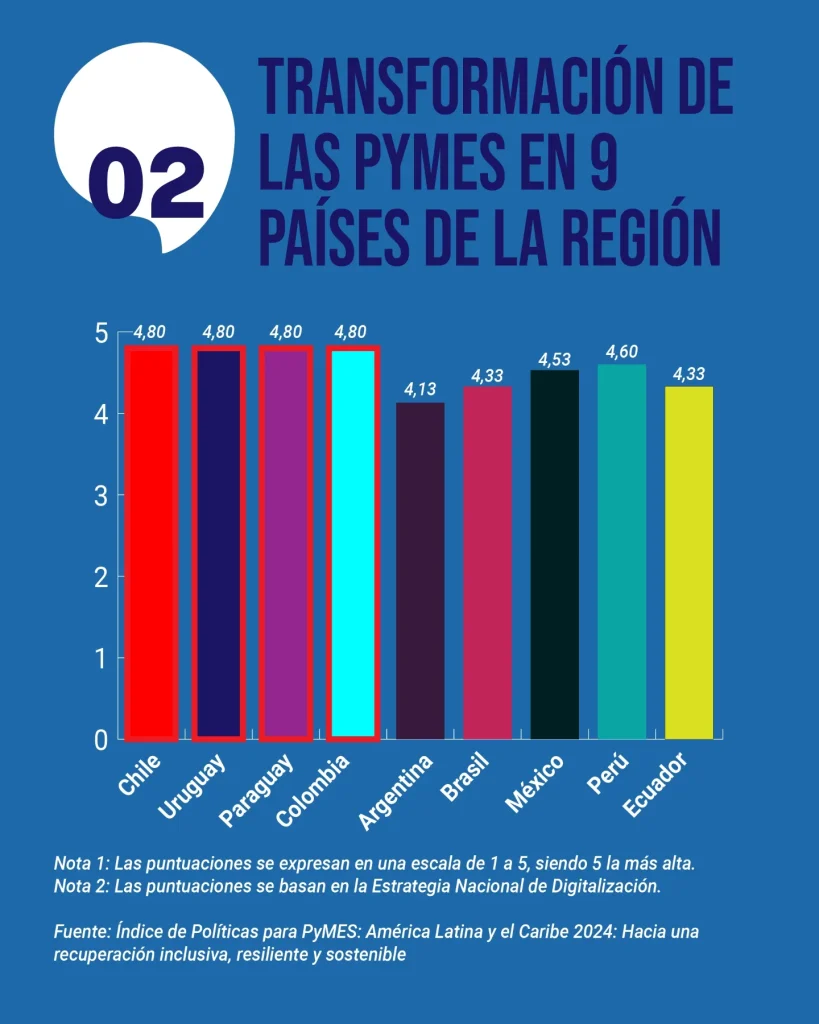
Chile, Uruguay, Paraguay, and Colombia stand out in the digital transformation of SMEs, according to the results of the “SME Policy Index: Latin America and the Caribbean 2024 (IPPALC)”, presented by the Latin American and Caribbean Economic System (SELA), the Organisation for Economic Co-operation and Development (OECD) and CAF–Development Bank of Latin America and the Caribbean.
Digitalisation is not just a trend, but a strategic necessity for the growth and efficiency of small and medium-sized enterprises in the region. The region is clearly committed to improving broadband connectivity and promoting the digital skills needed to facilitate this transition.

According to the results of the second edition of the IPPALC, Chile, Uruguay, Paraguay, and Colombia are at the forefront, implementing effective policies and specific strategies to support SMEs in their journey towards digitalisation. These countries have established digital policy frameworks guided by national strategies that integrate efforts from various entities.
For example, they have created interministerial committees that oversee the implementation of these policies and consult with stakeholders to ensure that the measures are effective and relevant. Through their National Digitalisation Strategies, these countries have achieved scores above the regional average, notably for their focus on digital literacy and the streamlining of government services.

The IPPALC assesses trends and progress in the design, implementation and impact of policies affecting micro, small and medium-sized enterprises in nine countries in the region: Argentina, Chile, Colombia, Ecuador, Mexico, Peru, Uruguay, Brazil and Paraguay.
This study is part of SELA’s Work Programme, with the aim of formulating public policies that promote productive sectors, strengthen business models and develop new markets for the regional SME business ecosystem.
